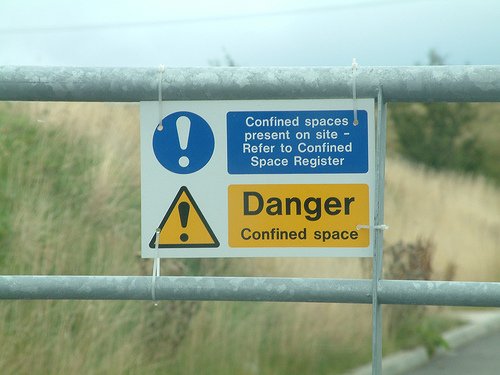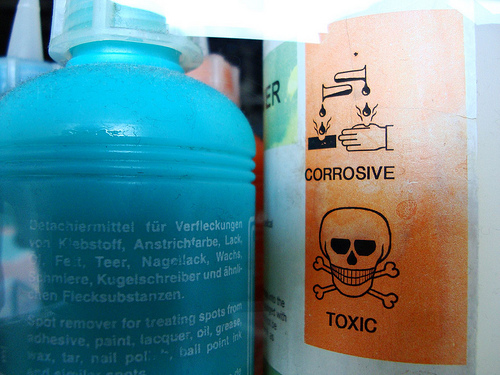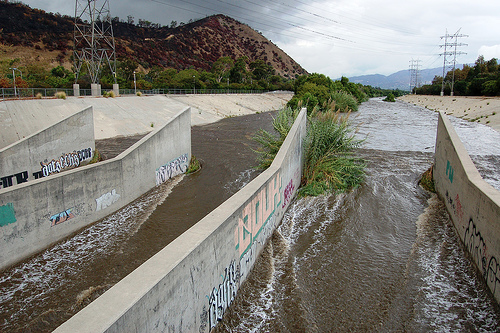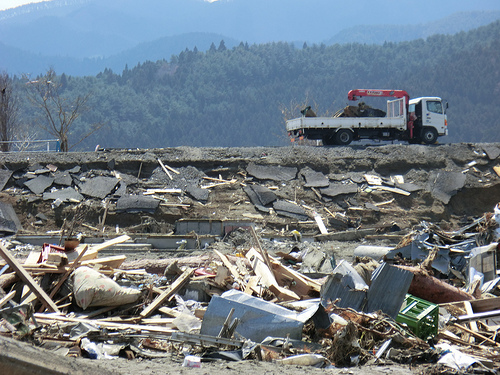The federal Clean Water Act (CWA) and state water quality laws (including California’s Porter-Cologne Water Quality Control Act) govern activities that may affect “waters of the United States.” Routine discharges from industrial and public sources make up most potentially polluting discharges, and are subject to National Pollutant Discharge Elimination System (NPDES) permits and California Waste Discharge Requirements (WDRs), but additional requirements also apply to potential “storm water” runoff from rainwater and snow, which can entrain oils and other pollutants and wash them down storm drains into water bodies. The US Environmental Protection Agency (EPA) established the first broad-based national program in 1990, and has revised and expanded requirements over the past quarter century (often in response to court decisions finding its efforts inadequate). States have followed suit. For example, in 2014 California updated its industrial storm water requirements, replacing a general permit adopted in 1997 with a new one that becomes effective on July 1, 2015. The new permit revises and expands requirements, including narrowing exemptions for “light industry” facilities to become conditional exemptions subject to certification requirements, and addition of detailed requirements for “preproduction plastic” materials. The remainder of this note summarizes the new California requirements, which generally are comparable to EPA’s national general permit (last updated in 2008)–so readers outside California should remember that your facilities face analogous responsibilities.
Audit, Compliance and Risk Blog
July 1 Deadline For California’s Revised Industrial Storm Water Requirements
Posted by Jon Elliott on Tue, Jun 30, 2015
Tags: Health & Safety, California Legislation, Environmental risks, Environmental, EPA, Hazcom
EPA and Corps of Engineers (Re)define “Waters of the United States”
Posted by Jon Elliott on Tue, Jun 23, 2015
You’ve likely heard it said that “everything we need to know we learned in kindergarten.” Well, that includes the benefits of taking a nap in the middle of the day, which has been shown to improve attitudes and enhance the ability to learn and manage tasks. Young children and elderly persons tend to nap, and napping is an important aspect of many cultures. However, as a nation, the United States appears to be becoming more and more sleep deprived. General reluctance to take naps may be attributed to a busy lifestyle and the demands of the North American workplace, or to the idea that napping will interfere with our nighttime sleep, or the stigma that napping equals laziness and results in poor productivity.
Tags: Corporate Governance, Business & Legal, Employer Best Practices, Health & Safety, Employee Rights, Training
EPA Promotes Green Infrastructure for Healthier Urban Environments
Posted by STP Editorial Team on Tue, Jun 09, 2015
What is “green infrastructure”? Green infrastructure incorporates vegetation, soils, and natural processes to manage water and create healthier urban environments. When talking about an area the size of an entire city or county, green infrastructure refers to an assorted collection of natural areas that provide habitat, flood protection, cleaner air, and cleaner water. When referring to an individual neighborhood or smaller locale, green infrastructure refers to stormwater management systems that simulate nature by soaking up and storing water, which then can be redirected back into sustainable usage by those communities.
Tags: Health & Safety, Environmental risks, Environmental, EPA, Transportation, Stormwater
Last week the U.S. Occupational Safety and Health Administration (OSHA) issued its first detailed standard requiring employers in the construction sector to define confined spaces in their workplaces, and to implement training and safety programs to protect employees. This new standard incorporates longstanding requirements for most employers (what OSHA calls “General Industry”), with enhancements based on ongoing experience. Whether your organization is in construction, general industry, or another specialized sector, OSHA’s new standard provides a reminder to consider confined space safety in your workplaces. The following discussion summarizes the main issues and associated compliance requirements.
Tags: Business & Legal, Employer Best Practices, Health & Safety, OSHA, Employee Rights
The Occupational Safety and Health Administration (OSHA) adopted massive changes to its Hazard Communication Standard (HCS or Hazcom) effective May 25, 2012, updating chemical information, labeling and training requirements that had been in place since the 1980s. These revised requirements conform U.S. requirements to international guidelines under the U.N.-sponsored Globally Harmonized System of Classification and Labeling of Chemicals (GHS). Recognizing the extent of these changes, OSHA provided multi-year compliance phase-ins for employers whose workers manufacture, distribute or use chemicals. The next such deadline is June 1, 2015, when Safety Data Sheets (SDSs) must replace Material Safety Data Sheets (MSDSs) and end-user employers must ensure that their Hazcom programs reflect most of the revised requirements.
Tags: SDS, Health & Safety, OSHA, Environmental, EPA, Hazcom
Two and a half decades ago, I left my home in Austin, Texas, armed with a BS in Civil Engineering from the University of Texas at Austin with an emphasis in water resources and environmental pollution control, and moved out to Los Angeles, California. My job as a young engineer was to be part of the Los Angeles Department of Water and Powers (LADWP) Superfund Group, a team in charge of assessing and cleaning up four federal Superfund sites in the San Fernando Valley (SVF) of southern California. Having taken Environmental Engineering 101 (“dilution is NOT the solution to pollution”), as well as classes in waste and hazardous waste management, hydrogeology, and many others, I felt ready to tackle the Superfund world…but what was it really?
Tags: Business & Legal, Audit Standards, Environmental risks, Environmental, EPA
As global attention to climate change and greenhouse gas (GHG) emissions has grown over the past two decades, California has been one of the leading jurisdictions. This began with statewide planning efforts in the 1990s, designed to identify and quantify GHG emissions. After the turn of the millennium it expanded to significant control requirements imposed on targeted source categories—notably a 2002 law (AB 1493) requiring the world’s first GHG emission limits on motor vehicles.
Tags: Health & Safety, Environmental risks, Environmental, EPA, Greenhouse Gas, ghg, Hazcom
Last weekend’s disastrous earthquakes in Nepal are a reminder that natural disasters can strike anywhere. Employers can and should plan for a broad range of events, and can apply guidance from occupational safety and health agencies standards when doing so. The U.S. Occupational Safety and Health Administration (OSHA) requires employers with specified activities to prepare and implement emergency action plans (EAPs), provides guidance for EAPs, and recommends that all employers prepare these plans. Employers can use this structure to prepare for earthquakes.
Tags: Corporate Governance, Employer Best Practices, OSHA, Environmental risks, Environmental, EHS, EPA
B.C. Court Rejects Director’s Plea That Manager Was Responsible For Environmental Damage
Posted by Ron Davis on Mon, Apr 27, 2015
The founder and principal of Northland Properties Corp. (“Northland”), Bob Gaglardi and his son, Tom Gaglardi, the president of Northland were found guilty, along with Northland, of two counts of “unlawfully carrying on a work or undertaking that resulted in the harmful alteration, disruption or destruction of fish habitat along the foreshore of Kamloops Lake” contrary to the federal Fisheries Act (R. v. Northland Properties Corp., 2014 BCPC 251 (BC Prov. Ct.). The charges related to land clearing and placing of fill on seven of Northland’s properties. The Crown alleged the work was performed unlawfully by Northland’s servants and under the direction of the Gaglardis. Both Northland and Tom Gaglardi denied they intended to cause the resulting damage to fish habitat, pleading that “the project supervisor for the work, Jim Parks, exceeded the directions he had been given on the project regarding landscaping.” They did admit that they had failed to be duly diligent in supervising the project, resulting in the damage to the fish habitat. Bob Gaglardi pleaded he was only briefly and peripherally involved in the project and thus, was not guilty. The Court held that there was sufficient reasonable doubt to acquit him on the charges.
Tags: Corporate Governance, Business & Legal, Environmental risks, Environmental, Canadian










